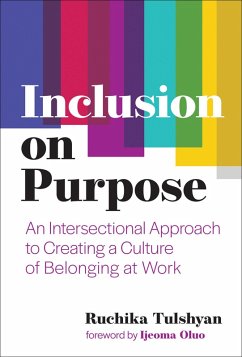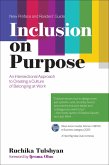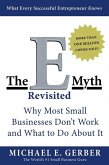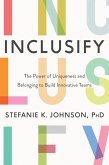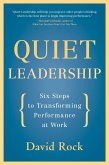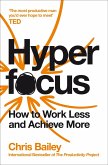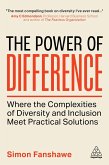Dieser Download kann aus rechtlichen Gründen nur mit Rechnungsadresse in A, B, BG, CY, CZ, D, DK, EW, E, FIN, F, GR, HR, H, IRL, I, LT, L, LR, M, NL, PL, P, R, S, SLO, SK ausgeliefert werden.
"By centering women of color, workplaces can begin to tangibly accomplish meaningful inclusion for all. Luckily for us, Tulshyan has written this guidebook to help us get started. "
Ms.
"Inclusion, diversity, and representation in the workplace have been hotly discussed topics over the past two years, which, to start, is long overdue. That said, it isn t enough just to talk about these issues they require active and persistent work to make any kind of lasting, positive change. Ruchika Tulshyan, CEO of consulting firm Candour, debunks a number of recent workplace self-help theories (like leaning in or establishing a level playing field or hiring someone because they fit within the preexisting office culture), while offering a guide to dismantling workplace bias, with a focus on the experience of women of color, who are subject to both gender and racial biases."
Fortune
"By reading Tulshyan s book, leaders will recognize the importance of seeing others for who they are and will begin to appreciate what they experience. Her hope is that they will be persuaded to stop implementing DEI policies that imagine each stakeholder as a potential I. Rather, they will begin to see each member of the organization according to their own unique identity. Organizations will be better for it."
Forbes
"In Inclusion on Purpose, the DEI consultant Ruchika Tulshyan notes that real progress requires not just empathy but proactive, ongoing effort. She offers six strategies for turning empathy into action be uncomfortable, reflect on what you don t know, invite feedback, limit defensiveness, grow from your mistakes, and expect change to take time and encourages readers to examine how policies or assumptions that seem normal can cause unintended harm. For example, she describes a workplace where social events always included alcohol, thus excluding employees whose religion, culture, or health kept them from drinking. Tulshyan recommends acknowledging such mistakes, identifying the biases that may have driven them, and working to do better."
Harvard Business Review
"Tulshyan explores how leaders and organizations can meaningfully foster diversity, equity and inclusion by taking action to address and prevent workplace bias, while centering on the workplace experience of women of color, who are subject to both gender and racial bias."
Publishers Weekly
With this important book, Tulshyan shows us how we can make progress toward inclusion and diversity and we must start now.
Porchlight Book Company
"What I like so much about Inclusion on Purpose is that it addresses personal and organizational steps for inclusion. It is action-focused, equipping readers with impactful approaches to advocate for inclusion at the individual level, while also focusing on systemic interventions. The intersectional focus means that it is more comprehensive and nuanced than other books dealing with this topic. Many chapters have reflective questions at the end, allowing the reader to really examine themselves and the spaces they re in. It s a perfect book to read in community with others to foster intentionality and accountability for inclusion in all aspects of work and life."
Smith School of Business at Queens University

